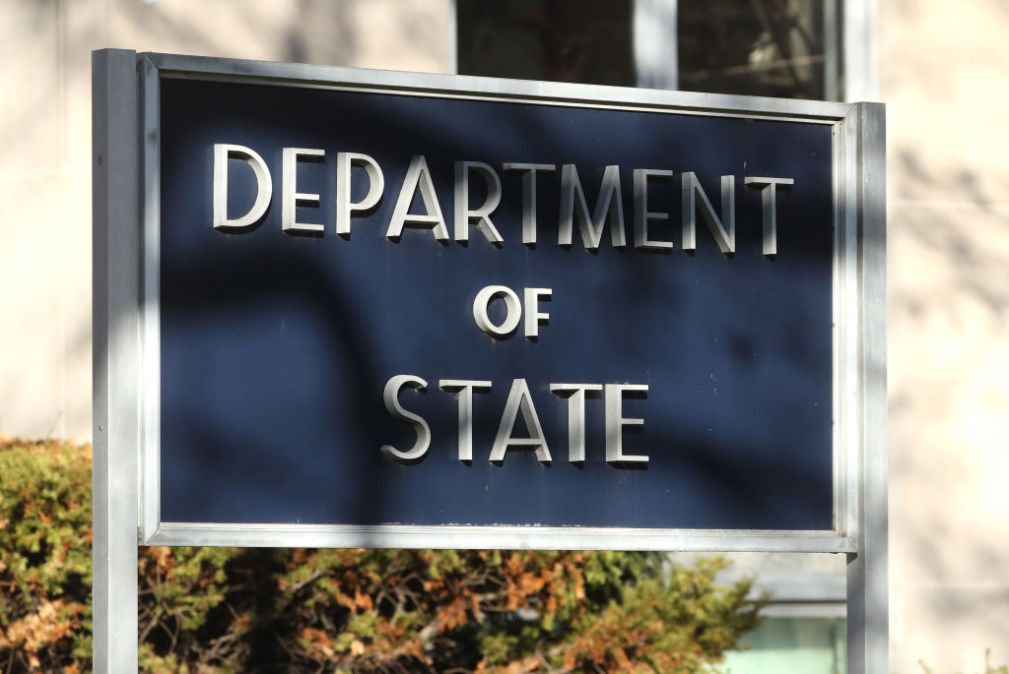State Department aims for total of 52 bureau chief data officers in next five years

Nearly two years after launching its bureau chief data officer program, the Department of State is seeing success and aiming to almost quadruple the size of its current cohort, Farakh Khan, director of communications, culture and training at the agency’s Center for Analytics, told FedScoop in a recent interview.
The bureau CDO, or BCDO, program officially began in September 2022 as a way to improve its use, governance, and management of data throughout the department. So far, Khan said, it’s led to better knowledge sharing and collaboration among bureaus, and advanced its efforts on artificial intelligence.
Currently, the department has hired 14 people in BCDO roles, accounting for roughly 25% of its bureaus, Khan said. But more positions are expected to be added. Bureaus will be developing and submitting plans to request additional roles over the next five calendar years, she said.
“We’re aiming for a total of 52 across the department,” Khan said, which would mean having an official in all the bureaus and major offices.
The program sits within the Center for Analytics and is overseen by the department’s chief data officer, who is also its chief AI officer. According to the National Defense Authorization Act for Fiscal Year 2024 — which established and expanded the program — its goals are to promote “data fluency and data collaboration;” “increased data analytics use in critical decisionmaking areas;” “data integration integration and standardization;” and increase efficiencies in the department.
“The goal of this is really to harness the power of data to advance diplomatic efforts, improve operational efficiency, and ensure transparency and accountability in the Department of State’s activities,” Khan said.
While AI wasn’t initially the intention of the BCDO program, its growth has come during the boom of the technology that heavily relies on vast amounts of data. As a result, the officials — who are responsible for data and AI initiatives in their bureaus — are also playing an important role in the department’s efforts to support its international affairs work.
“We won’t have AI if we don’t have good data,” Khan said. She added that “having a senior data professional in a bureau enables having a subject matter expert and a point of contact for all of these things that are related to data and AI.”
The Department of State has embraced AI over the past several years, releasing a strategy for the technology in October 2023 that included goals to provide broad access to secure AI in the department and use AI to advance diplomacy. Since then, it’s launched an internal AI chatbot, encouraged employees to use generative AI tools, and noted that the technology has freed the department up to focus on what its employees bring to work.
As an example of a BCDO program success story, Khan highlighted the Bureau of International Organization Affairs’ 2023 work to partially automate the quantitative part of an annual report to Congress on U.S. government financial contributions to international organizations. Khan said that improved the quality of the data and saved more than 600 labor hours.
The dashboards created as part of that effort, including information about United Nations financial contributions and personnel, are now also available to all department employees on an internal website, she said. That information has been used by personnel at the department’s overseas posts, for the bureau’s missions to international organizations, and by U.S. participants at the most recent UN General Assembly High-Level Week, Khan said.
That same bureau also developed an application using AI “to review draft UN resolutions for problematic language that would undermine UN principles,” Khan said. That use case will save the department time they would typically dedicate to manually finding and flagging that language and increase the accuracy of that process, she said.
A lot of those initiatives, Khan said, were led by that bureau’s BCDO.
As far as next steps for the program, the department aims to hire a consistent number of BCDOs each year to reach its goal of eventually having such an official in each bureau in the next five years, she said. And some of those postings could be on the horizon.
“We are currently working with a few bureaus on a plan for hiring in the near future and hope to have our next job posting go live this Fall,” Khan said.



